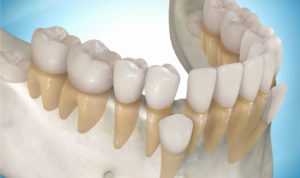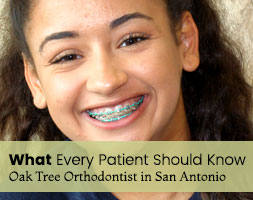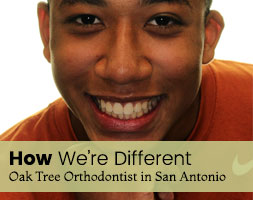Impacted and Missing Teeth

Your tooth may become impacted due to the developing tooth bud positioning itself improperly. When this happens, your tooth may not erupt in your mouth at all. Crowded teeth and a premature loss of primary teeth are two other common reasons for tooth impaction. Wisdom teeth, which are unnecessary teeth that grow in behind your last set of molars, can easily become impacted as well. Pre-molar and canine teeth are the next most common types of teeth to suffer impaction.
Why It’s Important to Correct Impacted Teeth As Soon As Possible
Left untreated, an impacted tooth can cause extensive damage to the roots of the teeth on either side of it. Additional complications include:
- Unwanted space between teeth
- Can cause problems with your sinus cavity
- Improper teeth alignment
- Premature breakdown of teeth
- Poor overall function
The sooner Dr. Melendez treats your impacted tooth, the less chance you have of developing the above complications.
Orthodontic Correction of Impacted Teeth
Some impacted teeth correct on their own within a few months. For those that don’t, Dr. Melendez will complete a surgical procedure that re-directs the impacted tooth to its correct positioning. If your impacted tooth is a wisdom tooth, he will remove it during a longer oral surgery.
Replacing Missing Teeth
Patients can lose permanent teeth for a variety of reasons, including disease and trauma to the mouth. In rare cases, the adult tooth never grows in at all. If you’re missing one or more of your natural teeth, it’s important to replace them without delay. Failing to do so can cause the following problems with your oral health:
- Improper alignment due to a shift of the remaining teeth towards the open position
- Premature aging of the teeth
- Loss of proper functioning of your teeth and jaw
- A smile that’s not as attractive as it could be
Dr. Melendez may be able to close the open space with braces in some situations. However, most people will require a dental implant or a bridge to cover the gap left by their missing tooth or teeth. Your dentist will discuss all tooth replacement options with you at your initial consultation. Feel free to ask questions about each possible procedure to ensure that you feel comfortable with your treatment option.





Let’s Be Friends! Oak Tree Orthodontist in San Antonio